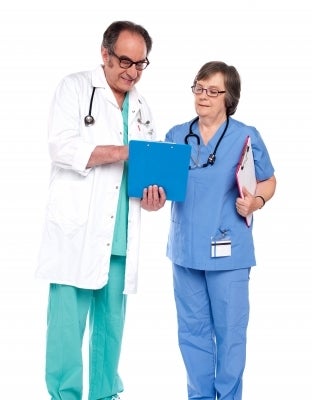A medical facility near Logan International Airport does not have access to the preferred protective suits for medical workers to handle Ebola cases, and even the head of one of the state’s largest hospitals told a legislative committee the current level of training is insufficient.
“We cannot get hoods, so I suspect that on the supply side they may be limiting the availability,” said Bernadette Thomas, the chief nursing officer of the East Boston Neighborhood Health Center. She said the protective equipment is a “large expense” and she would “welcome government intervention” to ensure smaller medical centers have access to the gear.
UMass Memorial Medical Center President Patrick Muldoon, whose facility treated a suspected relapse of Ebola in Dr. Richard Sacra, said the hospital does not have enough staff training, and it is implementing a “buddy system” and new cleansing procedures.
“The answer is not enough,” Muldoon told the Public Health Committee on Thursday when asked how much training is underway. “We need much more intense one-on-one training, over and over again.”
Nurses in Massachusetts and around the U.S. have been vocal about what they say is a lack of protective equipment, training and even communication from hospital higher-ups.
Karen Higgins, co-president of National Nurses United and a nurse at Boston Medical Center, held up a thin, flimsy plastic covering that she said is provided at many medical facilities, while arguing frontline health care workers should not be sacrificed because of the cost of the proper protective gear.
“I don’t want to have it be that I am the cost. I think my life is more – I think I deserve better than that,” Higgins said. She added that BMC has “stepped up its plan” in the past few weeks.
Public Health Commissioner Cheryl Bartlett, a registered nurse, expressed confidence in the state’s ability to handle Ebola cases, while saying she heard the concerns raised by the nurses. She told reporters that state health officials have not amended the guidance issued by the Centers for Disease Control and Prevention (CDC) – protocols that have been changed and have been criticized for potentially leaving health care workers vulnerable.
“At this point all hospitals should have the ability to manage contagious patients and to isolate them. I think we’re looking – we believe more guidance will be coming out from CDC, that the isolation may get more stringent,” Bartlett said.
Saying she planned to visit hospitals to assess readiness, Bartlett told reporters, “I think that they made some very important points, and as a nurse I’m very concerned about their safety, and so, again, I can’t say I that I know which facilities are or aren’t prepared based on their testimony, but clearly we want to make sure that we’re supporting the frontline workers.”
Bartlett said the Hinton Lab in Jamaica Plain is now equipped to conduct initial testing of Ebola. Bureau of Infectious Diseases Director Kevin Cranston said those test kits are “in very limited supply.”
After Department of Public Health (DPH) Director of Epidemiology and Immunization Larry Madoff pointed out that health care workers regularly confront infectious diseases, such as tuberculosis and meningitis, Rep. Denise Garlick, a Needham Democrat and registered nurse, noted that those diseases do not have the 50 percent or upwards rate of mortality that Ebola does.
“When people talk about ‘We don’t want anyone to panic,’ there is a difference between panic and situationally appropriate concern,” Garlick said. “I think at this point in time every citizen in the Commonwealth needs to have situationally appropriate concern.”
Medical officials were unequivocal about the unique threat that Ebola presents, and the major commitment that containing and eradicating the disease would require.
“We do not have another disease in health care in the United States that creates such significant challenges with personal protection, with the potential for disruption of all the adjacent health care operations, with difficulties with communication of accurate information about risk to patients, visitors, staff and the public, and this is not something we do every day,” Dr. Paul Biddinger, chief of the Division of Emergency Preparedness at Massachusetts General Hospital, told the committee earlier in the day.
Muldoon said UMass Memorial is considering using special respiratory units, which could help keep medical staff cool in bulky protective gear, and said, “It’s the frontline caregivers who have the best ideas of what they need to stay safe.”
Muldoon added that hospital staff had learned from caring for Sacra, including what to do about waste. He said the hospital has a sign at the door providing facemasks for anyone who may be ill with Ebola.

